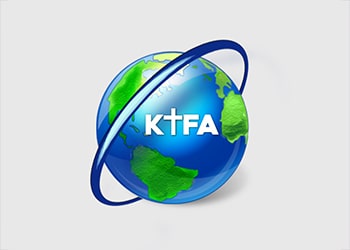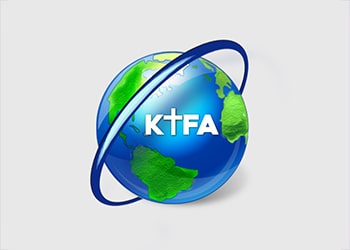♦ Regulatory controls for the classification of domestic systemically important banks (D-SIBs) .. For more, click here
♦ Supervisory work guide for risk management controls in Islamic banks .. For more click here
Clare: Commerce holds virtual meeting with WTO to discuss ways of cooperation and joint coordination
The Department of Economic Relations at the Ministry of Trade held a virtual meeting with the Secretariat and the Accession Department of the World Trade Organization, in the presence of the competent employee from (the Ministry’s Permanent Representative) in Geneva to discuss prospects for cooperation and joint coordination in light of the outcomes of the third working group meeting held last July in Geneva, and to complete the requirements for Iraq’s accession to the World Organization.
The ministry stated in a statement that “the meeting witnessed a discussion of the work plan for the next stage, which includes updating technical files, such as the legislative plan file, the memorandum of the foreign trade system, and the agricultural file, as well as discussing the files of accession of goods and services to the Iraqi market in accordance with the standards and agreements of the World Trade Organization.”
The statement indicated that “the meeting shed light on the mechanism of coordination and cooperation between the Department of Foreign Economic Relations and the World Trade Organization, in addition to international organizations supporting Iraq’s accession.”
He explained: “This cooperation aims to provide the necessary support and technical assistance to complete the requirements for accession, Iraq’s full membership in the organization, and the efforts of the Ministry of Trade to enhance Iraq’s position at the international and economic levels.” LINK
************
Clare: Leader in the Framework: America is obstructing Baghdad’s resort to the “currency basket” to maintain the dollar’s dominance
The leader of the Coordination Framework, Issam Al-Kriti, confirmed on Wednesday that America is obstructing Baghdad’s resort to a basket of currencies to maintain the dominance of the dollar.
Al-Kriti said in an interview with Al-Maalouma, “America’s resort to exploiting the dollar in drawing up rules for pressuring countries to achieve an agenda that protects its interests has pushed many capitals to diversify the currency basket in order to avoid sanctions and create flexibility in paying external supplies without any obstacles, which is a correct economic procedure.”
He added, “Washington is obstructing Baghdad from proceeding with steps to diversify the currency basket, especially the Chinese one, in order to maintain the dominance of the dollar, which was exploited by America as a pressure card by reducing the financial liquidity supplies for oil exports in order to pressure the government through the economic card.”
He pointed out that “America is restricting the Iraqi economy through the dollar, stressing the importance of proceeding with a roadmap to liberate the economy and push it towards more stable paths away from any tremors, especially since the American financial situation is likely to suffer major setbacks with the rise of public debt to record levels, which has begun to raise the concerns of countries and push them to take early preventive steps.”
It is noteworthy that America controls the revenues of Iraqi oil through the Federal Reserve, which sends funds to the Central Bank in exchange for selling crude oil.
almaalomah.me
Clare: Saleh explains the reason for the rise in foreign dollar remittances and its impact on the national economy
The financial advisor to the Prime Minister, Mazhar Muhammad Salih, explained the reason for the increase in sales of foreign currency remittances {dollars}.
Saleh told Al Furat News Agency, “The phenomenon of increasing sales of foreign currency transfers is due to the results of the important change that occurred in the policy of the Central Bank of Iraq in dealing with foreign transfers and intervening in the monetary market through the transformation of the mechanisms for financing foreign trade for the private sector from the compliance platform to new mechanisms represented by strengthening the accounts of correspondents of Iraqi banks abroad in foreign currency at studied and sufficient levels that are consistent with the requirements for financing foreign trade for the private sector in foreign currency.”
He added, “After the compliance platform had previously rejected nearly 85% of foreign transfer requests during the past months, the policy of strengthening the accounts of Iraqi banks with their correspondents from solid international banks, as an alternative policy, has become so easy, simple and flexible that it has made the implementation of daily foreign transfer requests available and achieved through foreign correspondent banks directly without going through the platform, at a high rate of nearly 85% of the total demand for these daily foreign transfers.”
Saleh explained that “this high change in the flexibility of transfers has been reflected positively on the national economy, especially in the stability of the functions of supply and demand within the national economy in two directions, the first of which is {the supply side} and is represented by the availability of a wide supply of goods and services in the local market through flexible imports financed by the fixed official exchange rate of 1320 dinars per dollar.”
He explained that “the other direction is {the demand side}, which refers to the process of exchanging the Iraqi dinar for the dollar for the purposes of financing foreign trade through the transfers mentioned above, which means that meeting the demand for the dollar represents a direct meeting of the demand for (foreign goods, services and benefits) for the benefit of the local market.”
He pointed out that “meeting the demand for foreign currency represents an important pillar of the monetary policy of the Central Bank of Iraq, and achieving its operational objectives in confronting the levels of local liquidity surplus from the dinar and controlling them, which constitute what is called {surplus demand}, as this control over local liquidity represents a positive intervention by the Central Bank’s monetary policy in the money market and controlling the levels of that liquidity.”
Saleh continued, “This control leaves positive effects in achieving a balance between the real flow in the overall economy of goods, services and benefits and the monetary flow within the economy itself,” indicating that “such a balance between supply and demand achieves stability in the general level of prices and welds growth levels in inflation rates, which is positively reflected in the stability of the purchasing power of the dinar and the general monetary income.”





